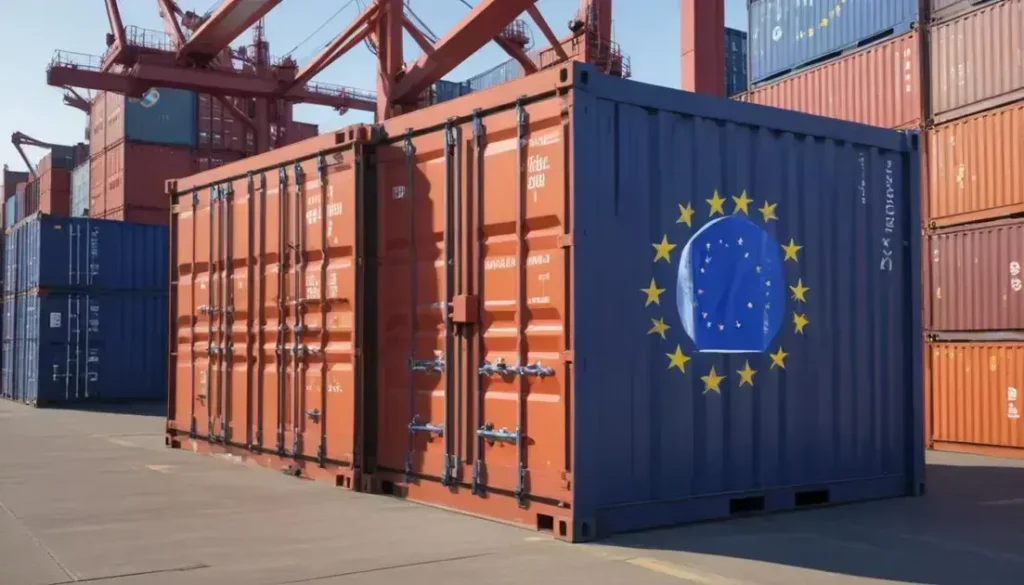Food security is significantly impacted by climate change, economic disparities, and population growth, necessitating immediate collaborative action to implement sustainable agricultural practices and improve food distribution systems to ensure adequate access to nourishment for all individuals.
In a world where food security is more critical than ever, understanding global shifts is vital for Indian businesses. Are they prepared to navigate these changes?
The future of food production
As we look towards the future of food production, the impact of technological advancements cannot be understated. Precision agriculture is emerging as a game-changer, leveraging data analytics to optimize farming practices. This method not only enhances crop yields but also minimizes resource wastage, providing a sustainable way to meet the growing global food demand.
Innovations such as vertical farming and hydroponics are gaining traction, especially in urban settings where space is limited. These methods allow for year-round crop production, reducing transportation costs and the carbon footprint associated with traditional farming. By adopting such sustainable practices, farmers can play a crucial role in combating climate change.
Moreover, biotechnology is opening new doors in food production. Genetically modified organisms (GMOs) are being developed to resist pests and diseases, which can lead to higher productivity and less reliance on chemical pesticides. This not only benefits farmers economically but also helps in producing more resilient food supplies.
However, along with these advancements come challenges. It’s essential to address public concerns regarding food safety and ethical implications. Creating transparent systems that educate consumers about the benefits and risks of new technologies will be vital for their acceptance.
Challenges of global food security
The issue of global food security is a formidable challenge, impacting millions worldwide. Climate change poses significant risks, disrupting traditional farming practices. Extreme weather events, such as droughts and floods, can devastate crop yields, exacerbating food shortages.
Another critical factor is the rapid global population growth, which increases the demand for food. As urbanization expands, arable land diminishes, placing pressure on farmers to produce more with less. This scenario calls for innovative solutions to enhance agricultural efficiency.
Access to resources remains a pivotal challenge in food security. Farmers in developing regions often lack the necessary tools and technology to improve their productivity. This inequity not only affects local economies but also propagates food insecurity.
Moreover, geopolitical tensions and trade barriers can disrupt food supply chains, leading to spikes in food prices. Such fluctuations severely impact vulnerable populations, making it harder for them to access adequate nutrition.
Addressing these challenges requires a multifaceted approach. It’s vital to invest in sustainable agricultural technologies, improve infrastructure, and promote international cooperation. By doing so, the global community can work towards achieving food security for all.
Impact of climate change on agriculture
The impact of climate change on agriculture is profound and far-reaching. Rising temperatures, altered precipitation patterns, and extreme weather events threaten crop yields and food production worldwide. Farmers are increasingly facing challenges such as droughts, floods, and unpredictable growing seasons, which can lead to significant reductions in harvests.
In addition, soil health is severely affected by climate change. Increased rainfall can lead to soil erosion, while drought can deplete soil moisture, both of which negatively impact agricultural productivity. Maintaining soil health is essential for sustainable farming, making this issue a primary concern for farmers and policymakers alike.
Pest and disease pressures are also intensifying due to warmer climates, leading to higher pesticide use and impacting both crop quality and farmer incomes. Changes in weather patterns can result in pest populations thriving in regions that were previously less affected, creating new challenges for crop management.
Moreover, climate change exacerbates existing inequalities in agricultural production. Smallholder farmers, who often lack the resources to adapt to these changes, may find it increasingly difficult to sustain their livelihoods. This challenge requires immediate attention and the implementation of adaptive strategies to ensure food security for future generations.
Sustainable farming practices
Sustainable farming practices are essential for ensuring long-term food security and protecting the environment. These practices focus on preserving natural resources while maximizing farm productivity. Techniques such as crop rotation and polyculture contribute to soil health and reduce the need for chemical fertilizers.
Moreover, implementing cover crops can prevent soil erosion and enhance soil fertility. These practices not only benefit the environment but also improve the economic viability of farms by increasing crop yields over time. By diversifying crops, farmers can also minimize risk and enhance resilience to climate fluctuations.
Integrating organic pest management strategies further supports sustainable farming. This approach reduces dependency on synthetic pesticides, promoting healthier ecosystems. Techniques like introducing beneficial insects can help control pest populations naturally.
Water management is another critical aspect of sustainable agriculture. Utilizing efficient irrigation systems and rainwater harvesting can mitigate water waste and ensure crops receive adequate moisture. Farmers can adapt to changing climate conditions and maintain productivity through innovative water practices.
Overall, sustainable farming practices are vital for creating a harmonious balance between food production and environmental stewardship. By adopting these methods, farmers can contribute to a resilient agricultural system that meets the needs of current and future generations.
Economic benefits of food system transformation
The economic benefits of food system transformation are extensive and critical for fostering sustainable growth. Transitioning to more sustainable practices enhances productivity and efficiency across the agricultural sector. This can lead to increased crop yields, ultimately benefiting farmers’ incomes and local economies.
By investing in innovative technologies, such as precision agriculture and smart farming, producers can optimize resource use and minimize waste. These advancements not only reduce costs but also improve overall food quality. Consumers are increasingly demanding higher standards, and meeting these requirements can be financially rewarding for producers.
Furthermore, sustainable food systems create jobs in various fields, from agricultural technology to logistics and distribution. This generates new opportunities, especially in rural communities, where employment options may be limited. As local economies strengthen, there will be a ripple effect that boosts related businesses and services.
Additionally, effective food systems can enhance food security. By reducing reliance on imports and ensuring a steady supply of locally sourced food, communities become more resilient to global market fluctuations. This stability can drive long-term investments in agriculture and food-related industries.
Overall, the transformation of food systems holds the promise of robust economic growth while fostering environmental sustainability, ensuring food security, and improving the quality of life for all stakeholders involved in the food supply chain.
Role of technology in food production
The role of technology in food production is increasingly vital as the world seeks to meet the demands of a growing population. Advanced technologies such as precision agriculture enable farmers to optimize field-level management regarding crop farming. This involves using GPS and IoT devices to monitor soil conditions, moisture levels, and crop health in real-time.
Furthermore, the adoption of automated machinery and robotics can significantly enhance efficiency on farms. These innovations reduce the need for manual labour, allowing farmers to focus on strategic decision-making. Drones are also becoming popular, providing aerial imaging that helps farmers assess crop development and identify pest issues quickly.
Biotechnology plays a significant role as well, with genetically modified organisms (GMOs) offering improved resistance to pests and diseases. This can lead to higher yields and reduced reliance on chemical pesticides, benefiting both the environment and farmer profits.
Data analytics and cloud computing are transforming decision-making processes in agriculture. With access to granular data, farmers can make informed choices about planting schedules, resource allocation, and risk management. This ensures enhanced productivity and sustainability in food production.
Overall, the integration of technology into food production is essential for creating a resilient agricultural ecosystem that can adapt to changing climate conditions and global demand.
Policy changes affecting food security
Policy changes affecting food security are critical for ensuring a stable food supply for populations worldwide. Governments play a vital role in shaping agricultural policies that dictate how food is produced, distributed, and accessed. Effective policies can enhance agricultural productivity while safeguarding the environment.
One significant aspect of policy changes involves subsidies and financial support for farmers. By providing financial incentives for sustainable farming practices, governments can encourage the adoption of methods that improve soil health, conserve water, and reduce greenhouse gas emissions. This not only bolsters food security but also promotes environmental stewardship.
Trade policies also significantly impact food availability. Restrictions or tariffs on imported goods can lead to increased prices and reduced access to essential food items. Conversely, policies that facilitate trade can help stabilize food prices and enhance access to diverse food sources for consumers.
Furthermore, regulatory frameworks regarding food safety and quality standards are crucial. Policies ensuring safe food production and distribution protect public health and can also improve consumer confidence in the food supply chain.
Ultimately, effective policy changes must be collaborative and data-driven, involving stakeholders such as farmers, consumers, and environmental groups. By prioritizing policies that focus on sustainability and resilience, governments can enhance food security for current and future generations.
Collaboration across sectors
Collaboration across sectors is essential for addressing the complex challenges in food security. Various stakeholders, including government agencies, agricultural producers, researchers, and non-governmental organizations (NGOs), must work together to create effective and sustainable food systems. By pooling resources and expertise, these collaborations can lead to innovative solutions that enhance productivity and resilience.
One significant area of collaboration is knowledge sharing. When researchers collaborate with farmers, they can share valuable insights on sustainable practices and emerging technologies. This partnership can lead to the development of climate-resilient crops and improved farming techniques, tailored to local conditions.
Public-private partnerships also play a crucial role. Companies in the agri-food sector can collaborate with governments to develop policies that promote sustainable practices and improve food distribution channels. This can be particularly beneficial in enhancing access to markets for smallholder farmers.
Moreover, collaboration with NGOs can help address social issues related to food insecurity. By working together, sectors can implement programs that provide education on nutrition, improve access to healthy foods, and support community initiatives.
Ultimately, fostering collaboration across sectors is vital for creating holistic solutions that not only address food security but also promote economic growth and environmental sustainability.
Justice for low-income regions
Achieving justice for low-income regions is crucial in the fight against food insecurity. These areas often face significant challenges, including limited access to resources, inadequate infrastructure, and a lack of essential services. Addressing these issues requires targeted policies and initiatives that empower communities and promote equitable access to food.
One effective strategy is to support local food systems. By prioritizing the development of community gardens and urban agriculture, low-income regions can enhance their food production capabilities. This not only increases food availability but also fosters community resilience and self-sufficiency.
Moreover, providing education and training on sustainable agricultural practices can significantly benefit these communities. Through workshops and programs, individuals can learn to grow their own food, understand nutrition, and improve their overall well-being. Access to microfinancing and grants can also help aspiring farmers start their businesses, contributing to local economies.
Collaboration with local organizations and NGOs plays a vital role in amplifying these efforts. By working together, stakeholders can effectively identify the needs of low-income regions and implement solutions tailored to those needs.
Overall, achieving justice for low-income regions involves a combination of community empowerment, education, and collaboration. Ensuring that everyone has the right to adequate food is essential for building a more equitable society.
Urgent need for action
The urgent need for action in addressing food security cannot be overstated. As global challenges such as climate change, economic instability, and population growth continue to escalate, the risk of widespread food scarcity increases. Immediate steps must be taken to ensure that all individuals have access to adequate food.
Governments play a crucial role in this response by implementing policies that promote sustainable agricultural practices and enhance food distribution systems. Investments in infrastructure are essential to improve access to markets, particularly for smallholder farmers in remote areas. This ensures that they can sell their produce effectively and support local economies.
Moreover, education and awareness campaigns are vital for informing communities about nutrition and sustainable practices. Empowering individuals with knowledge on how to grow their own food can significantly bolster food security. Collaborations between governments, NGOs, and the private sector can amplify these efforts and provide necessary resources.
Urgently addressing food waste is another key component of enhancing food security. Reducing waste in the supply chain and promoting better food preservation techniques can significantly increase the availability of food resources.
Ultimately, concerted and immediate action is needed to mitigate the impending food security crisis. Stakeholders from all sectors must come together to develop and implement effective strategies that ensure food for all.
In Conclusion
Addressing food security is a pressing issue that requires immediate and collaborative action. The challenges posed by climate change, population growth, and economic disparities affect millions around the world.
By implementing sustainable agricultural practices, enhancing food distribution systems, and fostering community education, we can make significant strides in ensuring that everyone has access to nutritious food.
Moreover, investing in local food systems and reducing food waste are essential steps toward building a more resilient food network. Engaging multiple stakeholders, including governments, NGOs, and communities, is vital for creating effective solutions.
Ultimately, by working together and prioritizing food security, we can create a healthier, more equitable future for all.
Frequently Asked Questions
What are the main causes of food insecurity?
The main causes of food insecurity include climate change, economic instability, population growth, and unequal access to resources.
How can communities improve their food security?
Communities can improve food security through local food production, community gardens, and education on sustainable agricultural practices.
What role do governments play in ensuring food security?
Governments can facilitate food security by creating policies that support sustainable farming, improve food distribution systems, and provide financial assistance to farmers.
Why is reducing food waste important?
Reducing food waste is crucial as it increases the availability of resources, helps feed more people, and minimizes environmental impact.
How can technology aid in enhancing food production?
Technology can improve food production through precision agriculture, data analytics, and innovative farming methods that increase efficiency and sustainability.
What steps can be taken to support low-income regions in terms of food security?
Supporting low-income regions involves implementing programs that promote local food systems, provide education on nutrition, and enhance access to markets for smallholder farmers.


